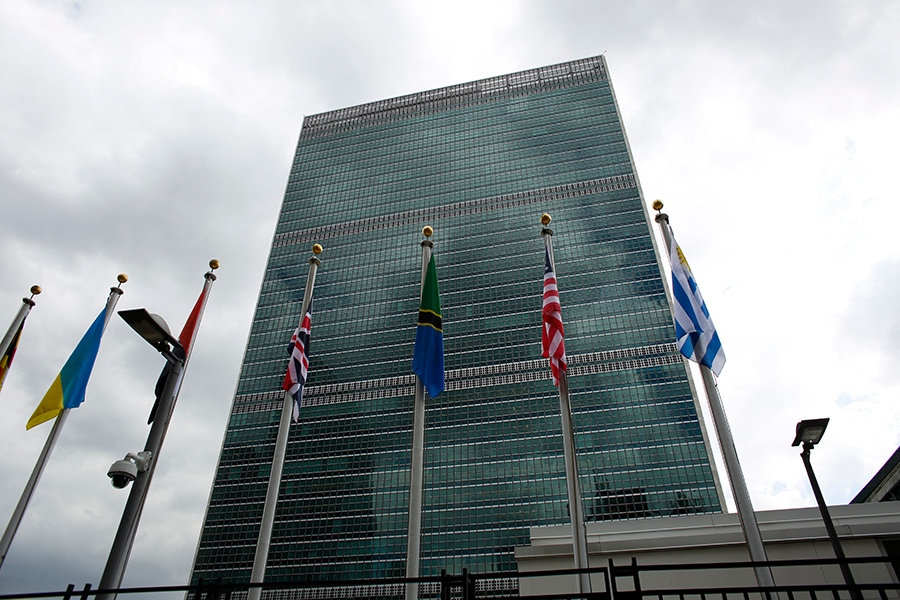“For half a century, ACA has been providing the world … with advocacy, analysis, and awareness on some of the most critical topics of international peace and security, including on how to achieve our common, shared goal of a world free of nuclear weapons.”
WMD-Free Zone Conference Makes Little Progress
December 2022
By Gabriela Rosa Hernández
The chair of a UN conference on establishing a zone free of weapons of mass destruction (WMD) in the Middle East expressed confidence that the initiative would bear fruit even though it has made little progress toward that goal.
 “We are fully aware that the journey to reach our objective is a very challenging one, but I am convinced that with a strong political will and commitment, we can achieve progress with collective dedication, wisdom and hard work,” Chair Jeanne Mrad of Lebanon said on Nov. 18, according to a UN statement.
“We are fully aware that the journey to reach our objective is a very challenging one, but I am convinced that with a strong political will and commitment, we can achieve progress with collective dedication, wisdom and hard work,” Chair Jeanne Mrad of Lebanon said on Nov. 18, according to a UN statement.
The third annual session of the conference took place Nov. 14–18 in New York.
Participating states reaffirmed their commitment to produce a legally binding treaty to establish a zone without affecting the development of chemical, biological, and nuclear research for peaceful purposes. At least one state raised the idea of setting a timeline to draft a legal treaty.
Twenty-one states from the Middle East and four observer states—China, France, Russia, and the United Kingdom—participated in the session. The International Atomic Energy Agency, the Organisation for the Prohibition of Chemical Weapons, and the Biological Weapons Convention Implementation Support Unit also attended.
Several states said that progress on creating a zone was hindered by Israel’s continued absence. Neither Israel, which possesses nuclear weapons but is not a member of the nuclear Nonproliferation Treaty (NPT), nor its main ally, the United States, has attended any of the three annual sessions.
“The NPT member states, especially nuclear-weapon states, must encourage all the invited states of the region to participate in this conference in an open and inclusive manner to elaborate a legally binding instrument on the establishment of the zone on the basis of consensus,” according to a Nov. 14 statement by the Lebanese mission to the UN.
Although the zone concept has generated broad international support over the years, there has been little practical progress toward the stated goal.
A future zone would commit parties not to possess, acquire, test, manufacture, or use any nuclear, chemical, or biological weapons, or their delivery systems, as provided for in the Middle East resolution adopted by the 1995 NPT review and extension conference.
Since 1995, debate over a potential zone has dominated and at times derailed discussions at NPT review conferences and in other disarmament forums. A UN study suggested that the region includes all League of Arab States, plus Iran and Israel.
In 2018 the UN General Assembly First Committee called on the UN secretary-general to convene a conference on establishing a WMD-free zone in the Middle East in 2019 and every year thereafter until a zone is created. (See ACT, December 2018.)
Last year, the conference adopted a resolution by consensus that led to the creation of an informal working committee aimed at advancing the slow-going deliberations. (See ACT, January/February 2022.) The working committee is preparing a glossary of terminologies and general principles and obligations for the zone.
The fourth session of the conference will be held Nov. 13–17, 2023, in New York.
